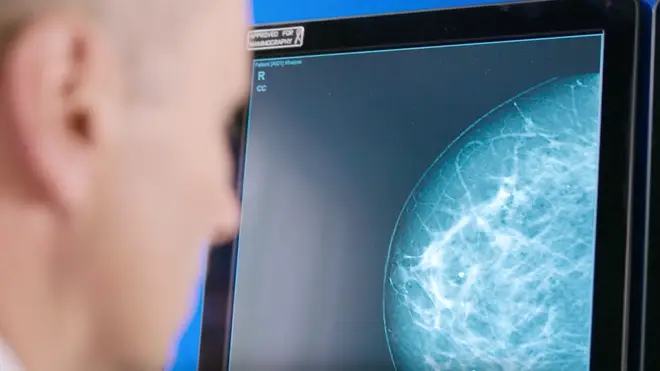
Tom Swarbrick 4pm - 7pm
1 August 2021, 11:04 | Updated: 25 July 2023, 11:53

The cutting-edge technology has been made available to Irish hospitals.
Artificial intelligence technology is set to support breast cancer screening in Ireland.
The Mia (Mammography Intelligent Assessment) tool uses cutting-edge AI technology to support radiologists examining breast images.
It assists radiologists in the process of reading mammograms, acting as an independent “second reader” of the images.
Developed by UK-based applied science company Kheiron Medical Technologies, it has now been made available across the island of Ireland through medical supply company Hospital Services Limited (HSL).
With bases in Dublin and Belfast, HSL distributes medical supplies and surgical equipment to public and private hospitals across the UK and Ireland.
Alex Hamlow, Kheiron’s chief commercial officer, said: “Our mission at Kheiron is to support breast screening professionals in the fight against breast cancer with proven and effective AI-enabled tools.
“We’re excited that Mia is the first AI independent reader solution available for use within the breast screening community across the island of Ireland.
“Based on its performance in the UK and Europe, Mia represents a major breakthrough in helping radiologists to dramatically improve breast cancer detection and patient outcomes.
“According to Breast Cancer Ireland, 690 deaths are attributed to breast cancer annually in the Republic of Ireland and 3,700 women in Ireland are diagnosed every year with breast cancer.
“In our meetings with radiologists and breast screening programme leaders across Ireland, we’ve had the opportunity to discuss how AI and Mia can help both radiologists and the women they care for.”
Dominic Walsh, HSL’s chief executive officer, added: “We are looking forward to bringing the Mia solution to the breast screening community throughout Ireland.
“It has tremendous potential to transform the breast screening pathway by empowering breast screening professionals to detect potential malignancies more accurately and quickly, ultimately saving more lives in the fight against breast cancer.”